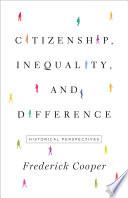
Globetrotting or Global Citizenship?
Perils and Potential of International Experiential Learning
Globetrotting or Global Citizenship? explores the broad range of international experiential learning options available to Canadian students, as well as the opportunities and the ethical dilemmas that come with them. Combining practical advice with critical examinations of international experiential learning, this essay collection is designed to help the reader to move beyond photo-ops and travel opportunities and towards striving for a deeper global citizenship. Globetrotting or Global Citizenship? is a valuable guide for students considering going abroad for experiential learning and a useful resource for those returning from such programs, as well as instructors and administrators facilitating pre-departure and return orientation sessions. Anyone taking part in international volunteering will find the reflections and analysis provided here an excellent starting point for understanding the potential impact of their time abroad.
- ISBN 13 : 1442626119
- ISBN 10 : 9781442626119
- Judul : Globetrotting or Global Citizenship?
- Sub Judul : Perils and Potential of International Experiential Learning
- Pengarang : Rebecca Tiessen, Robert Huish, Robert Huish,
- Kategori : Education
- Penerbit : University of Toronto Press
- Bahasa : en
- Tahun : 2014
- Halaman : 296
- Google Book : http://books.google.co.id/books?id=8rWFAwAAQBAJ&dq=intitle:Citizenship&hl=&source=gbs_api
-
Ketersediaan :
Combining practical advice with critical examinations of international experiential learning, this essay collection is designed to help the reader to move beyond photo-ops and travel opportunities and towards striving for a deeper global ...









